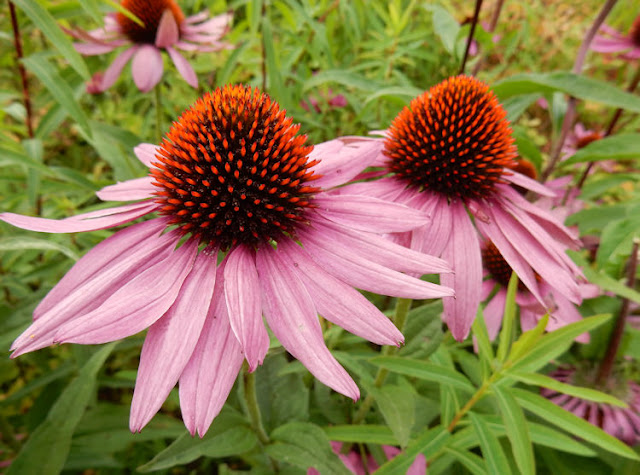 |
| Herb Garden: Photo & Article © Ann Walker |
These days, apart from folklore, documented traditional use of herbs and the knowledge of herbalists with clinical experience, there is an addition resource at our fingertips: from research. Clearly much of this research is aimed at finding key herbal ingredients which could be used or copied by the pharmaceutical industry to produce modern medicines. While laboratory studies like these can highlight compounds in a herb that might support physiology, these types of studies cannot predict the effects of herbs on human beings.
For that we need studies on human volunteers. Fortunately, clinical trial evidence of the use of many herbs is becoming increasingly available. This is deepening our knowledge and understanding and even opening-up new applications for herbs to add to their traditional use. Although funding for such work is scarce, progress is being made. Human studies are highlighted in nineteen new herbal monographs prepared for the Discovering Herbal Medicine course. The herbs in the monographs are popular and widely-available from many outlets, including the internet, as tablets or capsules carrying a Traditional Herbal Registration (THR) – a seal of safety and quality for home use.
In preparing the new monographs, we were keen to convey two main themes: traditional herbal use and modern research. Without documented traditional use, the applications of botanicals for disease would be largely unknown or confined to folklore and word-of-mouth. The THR scheme requires documented evidence for the of use of herbs for at least fifteen years in Europe.
Fortunately, many of our predecessors have kept detailed accounts of herbal remedies and examples of these are used throughout these monographs. Going on these old records, our ancestors weren’t so badly off without the benefits of modern medicine. Indeed, they had access to some powerful herbal medicines. Not only is modern research supporting this ancient knowledge, but it is augmenting it in ways our ancestors would never have dreamed of!
PMID, PubMed identifier
Ann Walker PhD FCPP MNIMH RNutr
Herbal Practitioner and Nutritionist
Course Director Discovering Herbal Medicine



